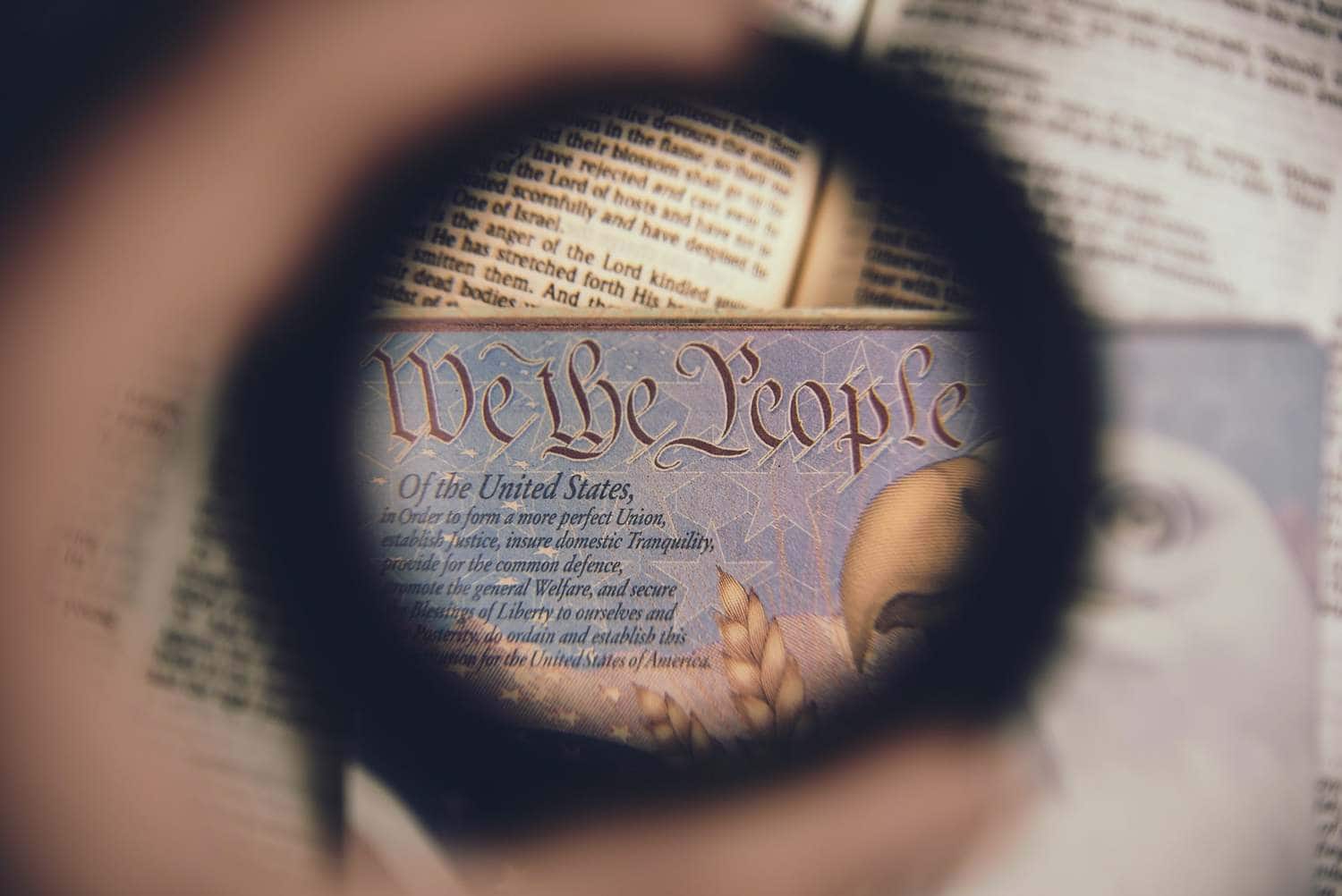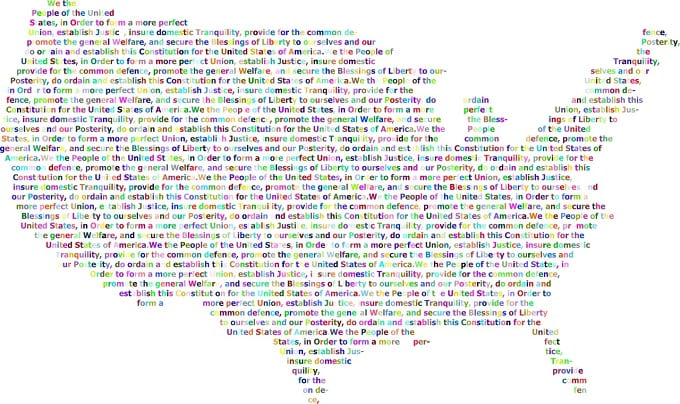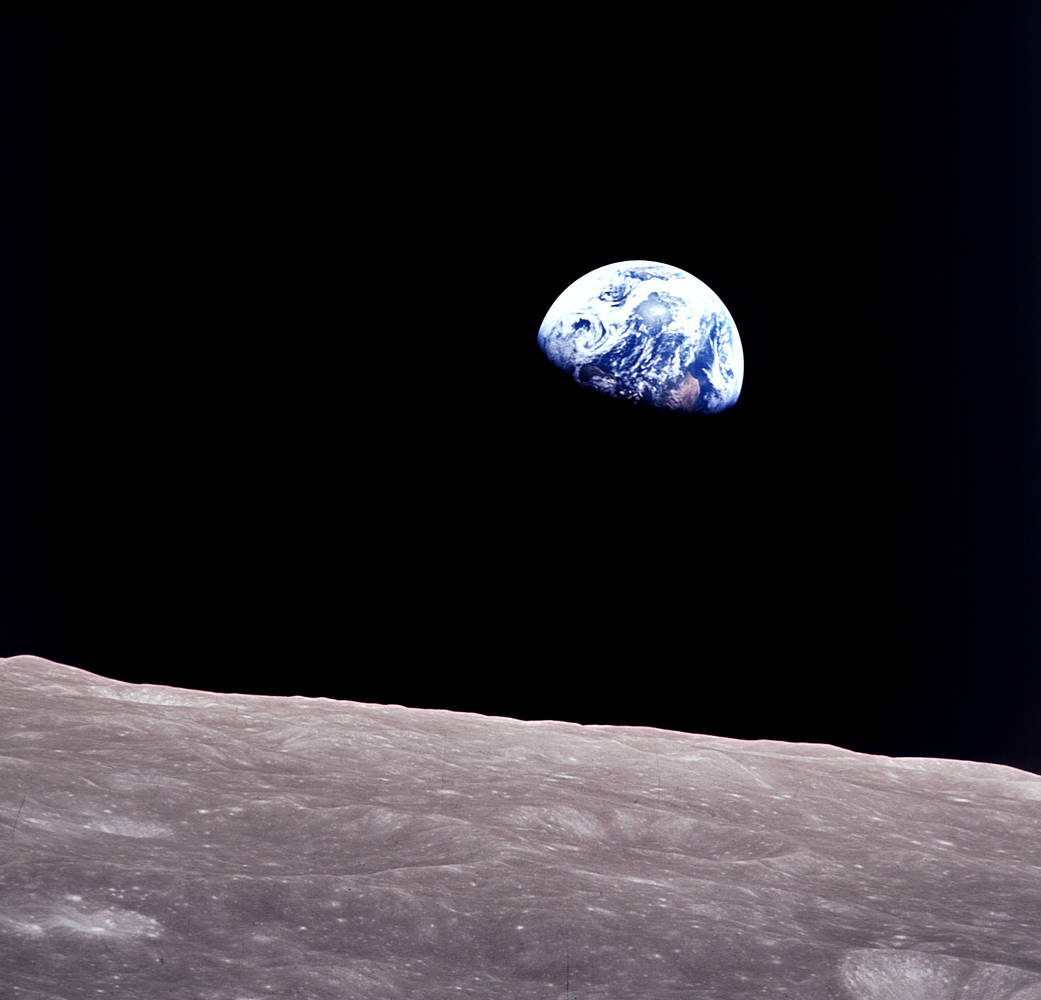
It’s Neither Constitutional Nor Fundamental to Our Existence
I previously explained why Christian Nationalism isn’t Christian in a post by that name, which can be found on Medium here and on my own website here. But now I would like to address the political problems with it. No, I’m not a constitutional lawyer, but I believe we all have the capability to understand the basics involved.
We should be familiar with the First Amendment of the U.S. Constitution:
Congress shall make no law respecting an establishment of religion, or prohibiting the free exercise thereof; or abridging the freedom of speech, or of the press; or the right of the people peaceably to assemble, and to petition the Government for a redress of grievances.
Why did the Founding Fathers find it necessary to specify the importance of the government not establishing a religion or prohibiting the exercise of the same? It was so important to them that it was the first of the First. Again, why?
We have only to look at the story of the Mayflower and the Puritans who landed at Plymouth Rock to find the seeds of this notion. In all the efforts to reframe Thanksgiving in a less Euro-centric way, the reason the Pilgrims came is often lost: they were looking for religious freedom.
Already in turmoil from King Henry VIII’s split from Catholicism, England was also struggling with all the “upstart” protestant groups arising from the Reformation moving through the European Continent. Whether it was over land, governance, religious practice, or some other issue, the Puritans and similar minded folks became the stepchildren ignored and disdained by the two main groups. The New World became a beacon for these orphan groups of Protestants who saw their chance to grab their own land and start anew without interference from the governments in their homelands.
In addition to the Puritans, there were the Quakers, Mennonites, Amish, Calvinist, Lutherans, Jews, and several smaller groups who were all in existence at our country’s founding, side-by-side with Catholics and members of the Church of England. It had required members of all these groups to join together in revolt against England. And the Constitutional Congress recognized that all these groups — and those to come — deserved the right to be free from interference by the government of this new country.
“But everyone was White Anglo-Saxon Protestant, so it didn’t matter.” Ah, but they weren’t, and it did.
William Penn recognized the need for tolerance between groups and built that in when founding what became Pennsylvania. Massachusetts, on the other hand, was all about the Congregationalist Churches and didn’t get its state fingers out of church function until 1833. (A summary can be found here.) Other states also dragged their heels when removing requirements for applicants for office to be upstanding (protestant) church members. That might mean excluding Jews, Catholics, and even other Protestant groups. (And the elephant in the room — African Americans, whether slave or free.)
Meanwhile, as our country grew, the Louisiana Purchase acquired a quantity of ethnic French and Creole Catholics. Texas, New Mexico, and California brought Hispanic Catholics and several Native American groups, some converts to western religions but many not. Not to mention the Chinese brought in to build western railroads. And church divisions that lay along ethnic lines continued to be issues, such as the large Irish Catholic immigration during the potato famine and the influx of Russian and Eastern European Jews in the early 20th century.
So, to say our country was built on — let alone founded on — a certain set of WASP morals is to ignore the fact that the shared morals of the Founding Fathers which were nominally based on Christianity go much further than Jesus. Back to the Ten Commandments? Maybe, but even those can be found in root form in the Code of Hammurabi and other world cultures.
As I said in the previous article, Nationalism is essentially tribalism on a larger scale. It’s a very human social phenomenon: we like being with people whom we see as “like us”. When we feel empowered, it is easier to expand our definition of who is “like us”. When we feel threatened, those definitions narrow, and the walls of separation become less permeable.

What makes the United States of America unique in its essence is that we are from so many different religions, and backgrounds, and ethnicities —and yes, nationalities. Sometimes in spite of ourselves, we have woven these into a strong tapestry based on the understanding of human dignity as outlined in our Constitution. Despite the temptation of tribalism at every change in economy or demographic in our history, it is our variety of world views, our experiences, and our differing weaknesses and strengths that give us the advantage over more homogeneous populations.
This is what makes America great. Not some glorified dream that never really existed, or existed for the privileged few who never planned to share. Not the fear mongers who know how to push our emotional buttons to bypass our thought processes so we play into their power manipulation.
No, it’s great because of the sharpshooters who learned by hunting small game as children to help feed their poor families. The Navajo Code Talkers who made secure communications possible over open radio waves. The journalists who weren’t willing to turn a blind eye when they saw things that were wrong. The immigrants, then and now, who risked everything to come to a new land seeking a brighter future. The farmers fighting weather and economics for one more harvest. The moms working three jobs to give their kids chances they never had. The single person who takes an extra shift so their co-worker can go home to care for an ailing parent.
Christian Nationalism can’t be constitutional, because it says one religious group has all the political answers when our own history has proven that to be untrue. And if you take a hard look at the people who call themselves leaders in the movement (any Nationalist movement, for that matter), I think you will find their examples to be more for empowering themselves and their associates than seeking what is good for our whole country, including you and me.
But Nationalism of any sort is antithetical to what makes the United States of America. Our country’s very name recognizes that we aren’t all the same. We have 50 states with distinct governments, cultures, and even ways of speaking. The tension between State rights and responsibilities versus Federal rights and responsibilities is very real and has been there from the beginning. That was and is on purpose. Because we are different.
Some of our early population came seeking religious freedom, yes. But some were Scottish prisoners of war who lost to the English. Others were indentured servants brought by prospective farmers and merchants. Convicts were brought from England to work off their debt to the Crown, followed by the slaves brought from Africa to work the plantations and the slaves brought from China to work the railroads, mines and brothels — groups who also became shopkeepers, and farmers, and productive citizens. To pick any one group and tell the rest to leave is not only unrealistic, but it ignores the roles all these groups have played in making America what it is.
Yes, we are different, but we are even more alike — if we are willing to recognize it.
Look beyond the labels. Venture past the walls of Us vs Them and try to see what others see. Change the channel and listen to what others hear.
Unless you happen to be in the top 6% economically, you are with the rest of us just struggling to get by. What we, the 94% forget, is that we have the power of sheer numbers if we are willing to wield it — at the ballot box, first and foremost. But also in our conversations, recognizing that the other guy is more like us than not. We start in our relationships with family, friends, and coworkers, but it doesn’t stop there, for we can treat every person we meet with the dignity they deserve as human beings.
The temptation is to blame others: illegal immigrants, legal immigrants, Republicans, Democrats, stupid kids, stupid Boomers, selfish (insert your favorite group here). But blame doesn’t solve anything. And violence only feeds into the game of, “See, I told you they aren’t worthy!” We can and must march in protest when needed. But do it with dignity. Call out those who foment hatred, especially if they claim to represent you.
The oxymoron of Christian Nationalism is not needed. We need to relearn civil discourse, no doubt, but we need to go beyond that. What we need is a movement that seeks to build bridges, remove walls, and extend dignity.

People are hurt and fearful. We need to find a way to put the anxiety and fear into perspective and, hopefully, grow past it.
Remember that iconic photo of Earth from the moon? We are all in the same boat. Whether your inspiration is experiential or spiritual, we are our brother’s keeper in fundamental ways, both morally and constitutionally. We — you and I — have the power to reach out in love and extend dignity and grace to others, no matter how imperfect it may seem.
Our diversity may make us strong, but it’s by working together that we make America great.
Thanks for the post!
Thanks for reading.
Cheers